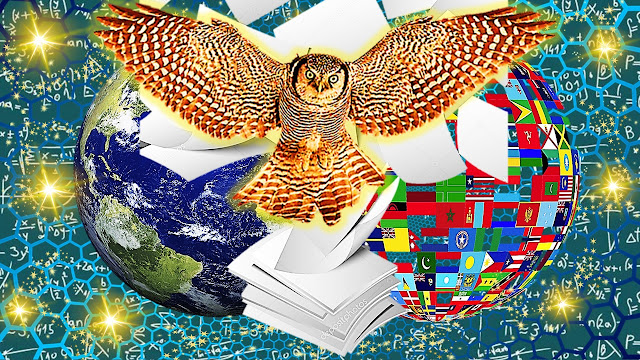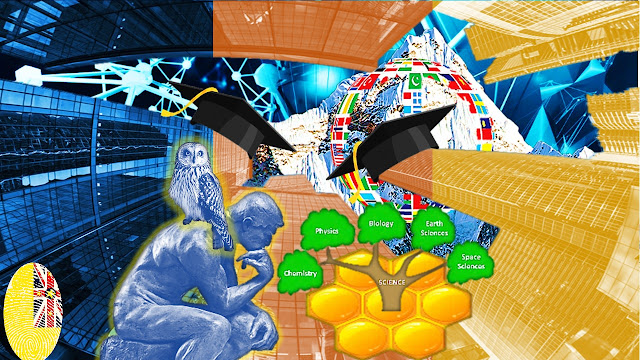INSTITUTES
INSTITUTES (eng) / ИНСТИТУТЫ (rus)
The following Branch International
Institutes are formed in the structure of the IASHE:
1) Institute of Astronomy and Planet
Earth; 2) Institute of Philology; 3) Institute of Law; 4) Institute of
Economics; 5) Institute of Business; 6) Institute of Pedagogy and Modern
Education; 7) Institute of Engineering, Construction and Architecture; 8)
Institute of Culture; 9) Institute of Art; 10) Institute of Biology; 11)
Institute of Medicine; 12) Institute of History and Philosophy; 13) Institute
for Social Strategies; 14) Institute of Psychology; 15) Institute of Physics;
16) Institute of Mathematics; 17) Institute of Chemistry; 18) Institute of
Beauty and Aesthetics; 19) Institute of Social Philosophy and Analytics; 20) International Institute of Commercial Arbitration and
Mediation; 21) Institute of Physical
Culture and Sports; 22) Institute of Activity and Achievements.
The following officials function in
the structure of the Branch Institutes: 1) Director (Co-Director); 2) Deputy
Directors; 3) Secretaries of Science; 4) Scientific Advisers; 5) Scientific
Experts; 6) Scientific Researchers; 7) Scientific Advisers; 8) Heads and Deputy
Heads of scientific laboratories; 9) Heads and Deputy Heads of scientific
sections.
If a Branch Institute carries out in systematic educational activities, the following system of educational subdivisions is formed in its organizational structure: 1) Rectorate (Rector and Vice-Rector); 2) Faculties and Deans of faculties (headed by Deans and their deputies); 4) Departments (headed by the Heads and their deputies); 5) Laboratories (headed by the Heads and their deputies).
More detailed information on the functioning of the Branch scientific institutes is provided at the special request of the interested person.In the near future, the Academy plans to start forming the Institutes of National Science of different countries at the IASHE.
The main task of the Institutes of National Science is to promote (to propagandize), and represent the science of different countries at the international level, integrate it into global scientific processes, present and promote national scientists and their achievements. The Institute of National Science is a permanent representation of the science of a certain country in Europe.
The functions of the Institutes of
National Science, in general, are similar to the functions of the Branch
Institutes of the IASHE, but the Institute of National Science is an
intersectoral structure and specializes in the problems, achievements and
development goals of the whole national science of a particular country.
The Institutes of National Science
organize the publication (under the auspices of the IASHE) of collections
(collective monographs) of scientific research by national scientists,
encyclopedias of the national scientific elite and periodicals (journals) on
national science of a sectoral or interdisciplinary nature.
The Institutes of National Science
have a structure of officials similar to that of the branch Institutes.
В структуре МАНВО формируются следующие отраслевые международные
Институты:
1) Институт астрономии
и планеты Земля; 2) Институт филологии; 3) Институт права; 4) Институт
экономики; 5) Институт бизнеса; 6) Институт педагогики и современного
образования; 7) Институт техники, строительства и архитектуры; 8) Институт
культуры; 9) Институт искусства; 10) Институт биологии; 11) Институт медицины;
12) Институт истории и философии; 13) Институт социальных стратегий; 14)
Институт психологии; 15) Институт физики; 16) Институт математики; 17) Институт
химии; 18) Институт красоты и эстетики; 19) Институт социальной философии и
аналитики; 20)
Международный институт коммерческого арбитража и медиации; 21) Институт
физической культуры и спорта; 22) Институт деятельности и свершений.
В структуре отраслевых Институтов функционируют следующие
должностные лица: 1) Директор (содиректора); 2) Заместители директора; 3)
Научные секретари; 4) Научные советники; 5) Научные эксперты; 6) Научные
сотрудники; 7) Научные консультанты; 8) Руководители и заместители руководителей
научных лабораторий; 9) Руководители и заместители руководителей научных
секций.
В случае, если отраслевой Институт занимается
систематической образовательной деятельностью, в его организационной структуре
формируется следующая система образовательных подразделений: 1) Ректорат
(Ректор и проректора); 2) Факультеты и Деканаты факультетов (во главе с
Деканами и их заместителями); 4) Кафедры (во главе с Заведующими и их
заместителями); 5) Лаборатории (во главе с Заведующими и их заместителями).
Более подробная информация о функционировании отраслевых научных институтов предоставляется по специальном запросу заинтересованных лиц.
В ближайшей перспективе Академия планирует начать
формировать Институты национальной науки разных стран при МАНВО.
Основная задача Институтов национальной науки –
пропагандировать и представлять науку разных стран на международном уровне,
интегрировать ее в глобальные научные процессы, презентовать и продвигать
национальных ученых и их достижения. Институт национальной науки – это своего
рода постоянно действующее представительство науки определенной страны в
Европе.
Функции Институтов национальной науки в целом схожи с
функциями отраслевых Институтов МАНВО, но Институт национальной науки является
межотраслевой структурой и специализируется на проблемах, достижениях и целях
развития всей национальной науки конкретной страны.
Институты национальной науки организовывают издание под
эгидой МАНВО сборников (коллективных монографий) научных исследований
национальных ученых, энциклопедий национальной научной элиты и периодических
изданий (журналов) по проблемам национальной науки отраслевого или
межотраслевого характера.
Институты национальной науки имеют должностную структуру,
схожую с подобной структурой отраслевых Институтов. Вместе с тем, деятельность
Институтов Национальной науки могут возглавлять избираемые Президент и
Вице-президенты и коллегиальные органы управления (Научный конгресс и Научный
Совет). В организационной системе Институтов могут функционировать
Попечительские советы.
Более подробная информация о функционировании Институтов национальной науки предоставляется по специальном запросу заинтересованных лиц.
office(at)iashe.co.uk



Comments
Post a Comment